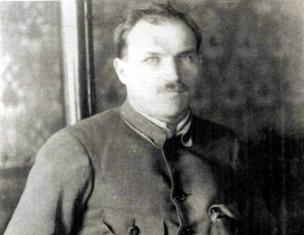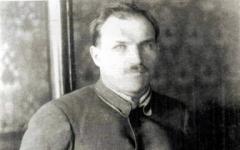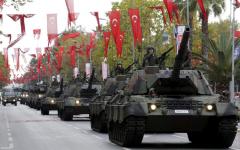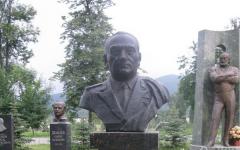1) The essence of professional training.
2) Goals of prof. Educational
3) Organization prof. Educational
The main idea of updating the senior level is the overall image. compound. is that the image. should here become more individually functional and efficient.
According to conc. modernization Russian images. For the period until the end of 2010 from 2001 at the senior level of general education. schools provided prof. training becoming the task of creating a “special system.” preparation of senior classes of secondary schools, orientation. for individual training, socialization of students, including taking into account the real needs of the labor market, as well as to work out and introduce a flexible system of study profiles in high school
1.Type of item
2. The set of main features characterizing prof. housekeeping specialty
3. Scoop. specialist. activities, as well as the nature of production. or educational bias
4. Bias - direction towards something, some specialization
5. Vocational training (according to the concept of vocational training 2002) is a means of differentiation and individualization of training, which allows, due to changes in structure, content and organization. image, creating conditions for training high school students in accordance with their profession. interests and intentions regarding continuing education.
Differentiation is aimed at ensuring that in the most degree to provide the individual. training, create optimal conditions for identifying and developing the abilities of each student.
The purpose of differentiation: to provide each student with conditions for the development of inclinations and satisfaction. in the process of assimilation of soda. general education
Aspects of differentiation:
1. Accounting individual characteristics
2. grouping students based on these abilities
3. variability educational process in groups
Prof. system training includes
1. basic general education subjects
2. profile (items higher level)
3. elective courses (required to attend elective courses of students included in professional training.
Elective courses- alternative courses designed to overcome prof. unidirectionality of learning and aimed at development. students of prof. orientation and development of special skills necessary for self-education and continuing education in the profession. educational institutions
Groups of elective courses
1. elective courses for non-special purposes (contribute to broadening the horizons, developing the abilities and cognitive interests of students; they can be associated not only with the chosen profile
2. elective specials. courses and elective special workshops aimed at in-training specialization
3. Elective specials. courses – courses that deepen individual sections and topics of the curriculum and are designed to fill gaps in acquired knowledge
4. Elective specials. workshops - designed to develop. The student has the skills and abilities required. for work in the field of electronics. biological research
master the skills of general scientific and biological methods, performing scientific methods
Models of organization prof. training
1. Intra-school (related to the unification of several educational systems into one.
Students of a particular school are taught using educational resources from other sources. institutions:
a) associated with the unification. several general educational institutions around the strongest one playing the role resource center
b) based on cooperation obligations. schools with higher, secondary and primary education
Educational:
1. formation of students’ knowledge about the basics of modern biology
2. provided students’ understanding of the essence in the development and manifestation of life at different levels of organization
3. familiarizing students with the history of development. biologist. research and biological methods
4. professional formation. meaning biologist. knowledge and skills to determine the role of man in nature based on an understanding of the laws of its development
Educational:
1. fostering a scientific worldview in students
2. education of responsibility for nature, respect for personal and professional. labor
Developmental
development of intellectual skills required. to continue education and self-education
Principles of Prof. training:
principles contents of prof. course: humanization, fundamental biol. knowledge
cultural conformity, unity and interdependence
scientific historian; prof. direction and polytechnics
prof. differentiation
principles of organizing the learning process
- individualization
- unity of educational and search cognitive activity
- interest
- trial training
- dialogue training
- unity of collective and individual activity
- creative activity
- independence
- Satisfied needs and motives
The leading idea of the structure of Prof. biology course – biology as a system of sciences:
a) the invariant part of the content component – the ideas of integrity and unity of nature, the unity of nature and man
b) the variable part of the content component - methodological, natural science and biological knowledge, types of activities, values within the content. element of special and non-special purpose courses.
– specialized (grades 11–12 of secondary (high) school).
In order to strengthen the educational and developmental potential of biological education and increase its contribution to the general cultural training of students, the following should be done:
– expand applied knowledge, including the basics of sanitation and hygiene, which form the basis for understanding the need to maintain healthy image life, the fight against bad habits, the spread of AIDS;
– to increase the environmental orientation of the content of biological knowledge, ensuring the education of environmental literacy, awareness of the need to preserve the “man-nature-society” system;
– to increase the share of knowledge of an ethical, aesthetic, humanitarian nature, which forms the basis for the formation of a value orientation towards objects of living nature, towards man as one of the objects of living nature.
peculiarity of the content of specialized training
Profile training is a means of professional self-determination. Consequently, the content of education should be focused on future professional education and future professional activity.
In accordance with the Concept of specialized education, the content of education in specialized classes should be formed from three types of educational subjects: basic general education (non-core), specialized general education, elective. The implementation of specialized training is possible only if there is a relative reduction in educational material in non-core subjects, partly through integration (to avoid overload). Elective courses together with specialized ones should ensure, firstly, the continuity of the content of general and vocational education, and secondly, a motivated choice of vocational education and future professional activities.
In a number of subjects - basic courses - basic education is completed.
In a number of subjects - specialized courses - training expands and deepens.
In elective courses, training is specialized, expanded or supplemented - at the choice of students
Profile stage of studying biology, (grades 11–12 of secondary (high) school
In secondary (complete) school, the principles of democratization and differentiation of education are implemented to the greatest extent. Students have the right to choose one of the proposed study profiles: humanities, general education, biology and chemistry, physics and mathematics, etc.
The non-biological profile must contain an invariant core of general education training in biology. In biology and chemistry, where the time for studying biology has been increased to 3–4 hours per week, deepening can go in several directions: environmental, medical, agricultural, etc. The specialized school is not compulsory for everyone and is aimed at preparing students to choose a future profession and continuing education at a university.
The study of biology at the profile stage can be carried out within the framework of systematic courses that include an invariant core of content, but differ in volume and depth of presentation of the material, as well as in applied focus. In accordance with the specifics of teaching and educational tasks in classes of a particular profile, the invariant core of content is complemented by its variable component.
A biology course in a senior (specialized) school reveals the most important laws of life, individual and historical development of organisms, and introduces remarkable discoveries recent years in the study biological systems different levels of organization of living matter, develops in schoolchildren an understanding of the greatest value of life, and forms the basis for understanding environmental problems and ways to solve them. It ensures continuity of knowledge acquired in the course general biology in 10th grade. [...]
The implementation of experimental methods used in teaching biology will be facilitated by the system laboratory work, excursions into nature, acquaintance with local ecosystems, main industries, practical work of students at the training and experimental site, self-observation. Along with traditional forms and teaching methods should use modeling of scientific research situations, educational and business games.
The introduction of specialized biology education provided the student with the opportunity to form an individual educational trajectory and provide in-depth training in selected disciplines, which makes it possible to relieve them of their workload in non-core subjects. The transition to specialized education contributes to the development of students’ skills in independent acquisition of knowledge, and is also intended to ensure high degree readiness not so much for passing the Unified State Exam, how much to continue education in higher educational institutions.
Download:
Preview:
Development cognitive activity in biology lessons for high school students of a specialized school.
Eremkina E.V. - biology teacher at secondary school No. 3 in Volsk Saratov region. March 26, 2013
Our school has been teaching biology in specialized groups for four years.
The introduction of specialized biology education provided the student with the opportunity to form an individual educational trajectory and provide in-depth training in selected disciplines, which makes it possible to relieve them of their workload in non-core subjects. The transition to specialized education, in my opinion, in addition to in-depth study of a particular subject, should also contribute to the development of students’ skills in independent mastery of knowledge, and is also intended to ensure a high degree of readiness not so much for passing the Unified State Exam, but for continuing their education in higher educational institutions. This means that during specialized training the necessary basis for understanding university courses and scientific literature should be created. And this seems unlikely to me without the use of special forms and methods of classroom and extracurricular work in specialized groups aimed at developing cognitive activity.
A student will not show cognitive activity if he does not receive satisfaction from the results obtained, does not see or does not know ways to apply knowledge in practice.
Typically, the teacher uses various shapes lesson, however, in each specific case he should strive to choose a method or methodological technique that would maximally stimulate the development of students’ cognitive activity.
The most effective technologies are those that implement the idea of individualizing learning and provide scope for creative self-expression and self-realization.
In my work I use technology as the main thing. problem-based learning, since the student’s transformative activity can be effectively implemented only in the process of independent work to complete a task of a problematic nature.
The problem-based approach to teaching is considered as a means of managing students’ thinking, and its goal is to enhance the cognitive activity of schoolchildren and develop interest in knowledge.
Problem-based learning technology allows you to avoid mechanical memorization of the material being studied. In the process of solving educational problem the student overcomes difficulties, which contributes to the development of his thinking, the awakening of cognitive interest, and the development of will.
The development of cognitive activity in students is carried out through the use of modular learning technology.
Modular training in general, and in the context of vocational training in particular, has a number of advantages. It allows students to work at their own pace. Besides, modular training It also provides “soft” forms of control in the process of mastering the content of educational material.
The most complete disclosure of biological theories and patterns scientific facts is facilitated by the use of a lecture-seminar training system. The educational function of this technology is realized if the lecture is logical, evidence-based, emotionally charged, contains scientific interpretations, and evaluation of results scientific research. Since a pure lecture is tedious, it is best to use lecture-conversations. By saturating the conversation with new factual material, offering students leading questions, I try to encourage them to form their own conclusions. The lecture-conversation seems to me to be effective also because this form of organizing lesson activities allows for closer contact between the teacher and students. As an example, we can cite dozens of topics in school lectures. I will name just a few of them: “History of the development of the science of genetics”, “Development of ideas about the evolution of living organisms”, “Mutational variability”, “ Environmental factors environment."
Seminars are another form of work in lessons in specialized groups that develop cognitive activity. As a rule, I organize them by topics that schoolchildren can understand on their own with the help of literature. For example: “Non-cellular forms of life”, “Reproduction of biological systems”, “Origin of life on Earth”, “Theory of anthroposociogenesis”, “Chemical organization of living matter”, etc. As experience shows, seminar lessons make it possible to intensify the cognitive activity of students, as they provide independent work over educational and additional literature, which encourages them to a deeper understanding of knowledge on the topic being studied.
In addition to review seminars, I also conduct control and generalization seminars: “Human Genetics”, “Main features of the evolution of the animal and plant world”, “ Global problems humanity", " Embryonic development animals" and research seminars "Study of the main stages of the life cycle of gymnosperms and angiosperms", "Studying methods of vegetative propagation of indoor plants", "Studying the patterns of inheritance of traits when crossing different plants."
In some lessons I also use this method: self-study basic and additional literature. This, in my opinion, serves as an important source of knowledge for students in specialized classes. The biology classroom contains a fairly large number of books that can be used in preparation for various types of classes.
The next direction in the development of cognitive activity is writing and defending essays, which contribute to a significant expansion and deepening of schoolchildren’s knowledge and the development of independence.
Abstracts completed by students of specialized grades X-XI are, as a rule, more serious in nature and require the high school student to have the skill of a research culture. A list of abstract topics is presented in the textbook after each chapter. The guys choose the topic themselves. The requirement is two papers per semester for each student. Abstracts are defended during the last 3 lessons of the semester.
Undoubtedly, laboratory and practical classes and independent research, the topics of which are suggested in the textbook, develop students’ cognitive activity.
Laboratory and practical classes - important form lesson work, a mandatory part of the programs. Such classes are conducted in class with the maximum possible independence of high school students.
Independent research is carried out outside of school hours. The study was conducted on the following topics: “The Ministry of Health warns about the dangers of passive smoking”, “Would you buy Whiskas pussy?”, “History and biology of a protected plant species in our region”, “Alcohol with your character”, “Biological diversity nearby with my home (school)”, “What is the state of the problem of preserving biological diversity in Russia”, etc.
Knowledge control is one of the important means of efficiency educational process. I carry out test work upon completion of studying each program section. They allow you to identify the degree of mastery of the material, identify gaps in students and adjust their knowledge in the future. The difficulty level of the tests must correspond to the specialized training. I use various types test tasks And automated system test control.
Continuation educational activities serves as extracurricular work, which is aimed at systematic education and development among schoolchildren creativity and cognitive activity. Students of specialized groups are active participants scientific and practical conferences, olympiads at various levels. Extracurricular and classroom work act in specialized groups as equal sides of a single educational process. In my deep conviction, only in this case can the goals of specialized training be achieved.
I've been doing it for several years research work with schoolchildren, specialized groups were no exception. Research activities contribute to the development of cognitive activity and allow each student to experience and test their capabilities.
Olympics among all forms and methods extracurricular activities occupy a special place in specialized training. The main goal of the Olympiads is to increase students’ interest in studying specialized disciplines and identifying talented children. For successful performance At the Olympiad, preparation is required separate from class activities, because the proposed tasks go far beyond the scope of even specialized training. Of course, the work of preparing for the Olympiad cannot be reduced only to the work of a teacher. It involves a lot of independent work by students with a variety of additional literature, and if the child shows cognitive activity, then he achieves certain results.
One of the main tasks of creating specialized groups is to retain the emerging interest in science, consolidate it, develop cognitive activity, and help students choose professions.
The development of cognitive activity through the forms and methods that I use allows me to achieve certain successes in the educational achievements of students.
Study results in 2012: academic performance - 100%, quality of knowledge - 88%, 2 students of the specialized group became prize-winners of the Olympiad in biology and ecology at the municipal level.
Every year, since 2005, students of the specialized group are active participants in the All-Russian competition “First Steps into Science”, projects “Intellectually creativity Russia", distance olympiads "Growth Factor".
One of the tasks of specialized education is to assist high school students in choosing professions. I believe that this task is being successfully implemented in our school:
Professional definition for the period 2009 - 2012 | |
Saratov State Medical University | 5 people |
Saratovsky state university them. N.G. Chernyshevsky | 4 people |
Saratov State agricultural university them. N.I. Vavilova | 11 people |
State educational institution of secondary vocational education "Volsk Medical School" | 5 people |
FGOU SPO "Volsky Agricultural College" | 1 person |
Profile training it is a means of professional self-determination. Therefore, the content of education should be future-oriented vocational education and for future professional activities.
Profile training is a means of differentiation and individualization of training, which allows, through changes in the structure, content and organization of the educational process, the interests, inclinations and abilities of students to be more fully taken into account, to create conditions for the training of high school students in accordance with their professional interests and intentions regarding continued education.
Teacher profile class advanced teacher. He knows his subject well and masters the teaching methods of his subject. He masters the methodology of specialized training.
Biology subjectobjects and processes of nature. The methodology of biology does not study these objects, does not discover facts and patterns in the life of plants and animals. The subject of her research is the process of training and education based on the material of a specific discipline. Thus, the subject and objectives of the methodology do not coincide with the subject and objectives of the corresponding science.
Tasks specialized training methods can be determined based on the target and functional aspects of specialized training. Like didactics, the methodology of specialized training seeks answers to the questions:
- - what to teach? determination of the content of specialized training, development of educational standards, curricula And methodological support to the educational process;
- - why teach? goals of specialized training related to the motivational and value orientations of the subjects of educational activity;
- - how to teach? selection of didactic principles, methods and forms of teaching that promote effectiveness pedagogical activity.
The means of preparing students for life, including professional life, is the content of education.
Most authors note that the essence of the content of education is that it acts as a social goal, a social order of society for the education system as a whole. However, V.V. Kraevsky notes that a pedagogical interpretation of this category is necessary, which consists in determining the dependence of the volume and structure of the projected content of education on the laws of learning and the real specifics of the means by which the teacher makes the content of education available to the student. Currently, three most common concepts of educational content exist and are being developed, presented by V.V. Kraevsky (Kraevsky V.V. . Contents of education: forward to the past. M.: Pedagogical Society of Russia, 2001. p. 8 10).
The content, methods, techniques, technologies of the modern educational process should be aimed at revealing and using the subjective experience of each student and are subordinated to the formation of personally significant ways of cognition through the organization of holistic educational activities. Assimilation educational knowledge, thus, turns from a goal into a means of self-development of the student, taking into account his life values and real individual capabilities.
Currently, the structure of educational content proposed by I.Ya. is considered the most justified in pedagogy. Lerner, which includes:
a) a system of knowledge, the assimilation of which ensures the formation in the minds of students of an adequate dialectical picture of the world, develops a systematic methodological approach to cognitive and practical activities;
b) a system of general intellectual and practical skills that underlie many specific types of activities;
c) main features creative activity ensuring readiness to search for solutions to new problems, to creatively transform reality;
d) a system of norms and relationships of people to the world and to each other, i.e. system of ideological and behavioral qualities of a person (Lerner I.Ya. . The learning process and its patterns. M., 1980. 86 p.).
The goals of specialized biology education have two aspects: subject and personal. When learning is viewed from the subject (objective) side, we talk about the subject aspect of learning goals. The subject aspect is the students’ mastery of the basics of scientific knowledge, general preparation for practical activities and the formation of scientific beliefs.
Learning, considered from the personal (subjective) side, includes goals that are inextricably linked with the implementation of subject goals. Personal aspect is the development of the ability to think (mastery of such mental operations as classification, synthesis, comparison, etc.), the development of creative and cognitive abilities, as well as such psychological qualities as perception, imagination, memory, attention, motor sphere, formation of needs, motives of behavior and value systems.
To manage cognitive activity, the teacher must be able to determine priority goals, i.e. logic, sequence (hierarchy) of specific goals for each stage of training, taking into account the prospects for further educational work. It is necessary to explain to students the guidelines in educational work, discuss its specific goals so that students clearly and clearly understand their meaning
Goal setting in pedagogy a conscious process of identifying and setting goals and objectives of pedagogical activity. The types of pedagogical goals are diverse. Pedagogical goals can be of different scales; they form a stepwise system. We can distinguish normative state goals of education, public goals, and initiative goals of teachers and students themselves.
At the senior level of school, education is based on profile differentiation. Here are the goals of specialized training.
The purpose of education is to prepare the younger generation for active public life. The purpose of training is more specific: students’ assimilation of general educational knowledge, the formation of methods of activity, and a scientific worldview.
Teaching methods in a specialized school should, along with knowledge, contribute to the assimilation of methods of activity. All students should have opportunities to develop their intellectual abilities through initial research and project activities, mastering more complex content than provided for in the educational standard.
Profile training should involve a significant increase in the use of methods such as independent study of basic and additional educational literature, other sources of information, overview and orientation lectures, laboratory and laboratory-practical classes, seminars, interviews, discussions, creative meetings, etc. Information support from using educational videos, electronic texts, Internet resources; It is very important to hold creative competitions and public defenses of projects; carrying out heuristic tests; use of rating assessments of the success of specialized training; excursions to enterprises, specialized exhibitions, internships in paid and educational workplaces. A special place among specialized training methods should be occupied by design as the main type of cognitive activity.
Profile training involves the development of a different nature of subject-subject relationships and activities:
highlighting the student as a subject, recognizing him as the main value of the entire educational process; the development of his abilities as individual capabilities, the recognition that the development of the student’s individual abilities is the main goal of education;
a change in the type of relationship between teachers and students, a transition from authoritarian control, subordination and coercion to cooperation, mutual regulation, mutual assistance, because in collective activity, everyone participates in solving the problem under discussion and finds their own ways of solving the problem, adequate to their inclinations, interests, and individual pace of development;
development of educational technologies, taking into account the laws of self-development and ensuring the implementation of the main goal of education by identifying and structuring the student’s subjective experience by aligning it with socially developed and socially significant experience;
teacher’s focus on students’ learning capabilities; building a lesson aimed at creating conditions for self-expression, self-realization, independence of each student, selectivity to subject content; to reveal and make maximum use of the child’s subjective experience, identifying the student’s attitude to knowledge and learning; to encourage schoolchildren to use a variety of ways to complete tasks without fear of making mistakes; on the use of active forms of communication (dialogue, discussion, argumentation, discussion, debate);
implementation, with the help of individual learning trajectories, of going beyond one academic subject and even existing today educational field and solving vital problems for the child at an integral level.
The effectiveness of the educational process depends (and this is not the only dependence) on the form of interaction between subjects of the educational process. In traditional education, the teacher communicates information, the student reproduces it, and the assessment is largely determined by the completeness and accuracy of the reproduction; At the same time, it is overlooked that the assimilation of material is connected with its comprehension. It is interesting to note that A. Einstein wrote about modern education: “In fact, it is almost a miracle that modern teaching methods have not yet completely stifled holy curiosity” ( Einstein A. Physics and reality. M., 1965. p. 5). The problem is to find convenient organizational forms, maintain and develop the openness of the education process at different levels of the system.
Students not only assimilate ready-made knowledge, but understand how it was obtained, why it is based on this or that content, and to what extent it corresponds not only to scientific knowledge, but also to personally significant meanings and values (individual consciousness). There is a kind of exchange of knowledge, a collective selection of its content. The student is the “creator” of this knowledge, a participant in its birth. The teacher, together with the students, carries out equal work on the search and selection of scientific content of knowledge that is subject to assimilation. Under these conditions, the acquired knowledge is not “depersonalized” (alienated), but becomes personally significant.
Go to specialized education exacerbated the problems of teachers’ readiness to search for adequate methods and technologies of education. Research results have shown that most teachers experience difficulties in two areas:
1. When restructuring the individual’s position in relations with students from authoritarian control to joint activity and cooperation.
2. In the transition from a predominant orientation towards reproductive educational activities to productive and creative educational activities.
Even with a high level of professional skill, the most difficult task was the change of personal attitude, the establishment of a co-creative environment in the process educational activities. A new approach to organizing the educational process requires the teacher to always have the consciousness of the student represented in his mind. The teacher must be able, firstly, to organize students’ understanding in communication with him, which is achieved through:
avoidance of meaningful statements;
illustrating ideas with examples;
holding the subject of discussion or fixing the moment of its change to another subject;
Secondly, be able to examine students' actual misunderstandings. This means putting forward, practically testing and adjusting one’s hypothesis about which real meanings “settled” in the student’s mind, which ones remained hidden and which ones turned out to be distorted.
Thirdly, be able to investigate the reasons for students' misunderstanding. Working with students' understanding is always working in a specific and unique situation for which one cannot be prepared in advance. And, nevertheless, when preparing for a lesson, the teacher can already foresee how a particular student will understand what is happening in the learning situation. This work is related to organizational and pedagogical scenarios, and its presence in the teacher’s arsenal indicates a high level of pedagogical professionalism. The highest level of mastery will be determined by the fact that the teacher can not only organize a learning situation himself, conduct a study of misunderstanding or diagnosis, but also form these abilities in students.
Technological maps in biology with teacher and student goal setting for schools different types.
Profile training is aimed at implementing a person-centered educational process. At the same time, the possibilities for the student to build an individualnal educational trajectory.
Using the example of biological disciplines, one can see how in educational program schools are emphasized or results are specified educational standard For teachers:
- - at a school with a mathematical bias training courses biology and ecology will acquire additional goal-setting for the student, integrating knowledge about nature with the mathematical apparatus of research and analysis;
- - for students of humanities classes for the purposes of biological disciplines, the dominant component will be socializing goals that bring subject knowledge to the level of biosocial structures and serve to support the processes of self-knowledge and self-determination of the student;
- - in schools with in-depth study natural science disciplines, the learning objectives in biology and ecology lessons will serve to expand and deepen scientific knowledge, since students with high level motivation for the subject are ready to accept such goal setting.
Technological lesson map for teachers. No. 1
|
Lesson topic:"The cell as a living system" (for public school) |
|
|
Goal setting for the student 1. Know the names and functions of cell organelles. 2. Be able to distinguish plant, animal, fungal and bacterial cells on tables based on the composition of their organelles. 3. Know the essence of cell theory |
Goal setting for the teacher 1. Subject goals.
|
Technological lesson map for the teacher. No. 2
|
Lesson topic:"The cell as a living system" (for schools of mathematics and economics) |
|
|
Goal setting for the student 1.Know the names and functions of 14 cell organelles. 4.Have an idea of the methods of cytology as a science and the significance of this science for practice.Be able to construct an algorithm for studying a cell in accordance with a specific task. |
Goal setting for the teacher 1. Subject goals. Help summarize knowledge from previous courses about different types of cells;
2. Goals reflecting the development of general educational skills and abilities
3. Educational goals, developing personal motivation, socializing To help students understand the importance of cytological research in medicine; Help students form connections between cytological knowledge and conscious choice each of them a healthy lifestyle. |
Technological lesson map for the teacher. No. 3
|
Lesson topic:"The cell as a living system" (for science schools) |
|
|
Goal setting for the student Be able to draw a diagram of an organoid and explain the principle of operation 2. Be able to distinguish plant, animal, fungal and bacterial cells on tables based on the composition of their organelles.Be able to “construct” a given type of cell. 3. Know the essence of cell theory.Be able to give examples of the provisions of the cell theory. 4.Know the methods of cytology as a science and the significance of this science for practice.Know the areas of application of basic cytology methods. Know the rules of working with a microscope, be able to prepare and/or examine a specimen |
Goal setting for the teacher 1. Subject goals. Help summarize knowledge from previous courses about different types of cells;
2. Goals reflecting the development of general educational skills and abilities
3. Educational goals, developing personal motivation, socializing To help students understand the importance of cytological research in medicine; To help students form a connection between cytological knowledge and the conscious choice of a healthy lifestyle by each of them. |
Technological lesson map for the teacher. No. 4
|
Lesson topic:"The cell as a living system" (for humanitarian schools) |
|
|
Goal setting for the student 1.Know the names and functions of cell organelles.Be able to draw a diagram of an organoid and explain the principle of operation. 2. Be able to distinguish plant, animal, fungal and bacterial cells on tables based on the composition of their organelles. Be able to distinguish them in a diagram, drawing and be able to name their components. 3. Know the essence of cell theory.Be able to give examples of the provisions of the cell theory. 4.Have an idea of the methods of cytology as a science and the significance of this science for practice. |
Goal setting for the teacher 1. Subject goals. Help summarize knowledge from previous courses about different types of cells;
2. Goals reflecting the development of general educational skills and abilities
3. Educational goals, developing personal motivation, socializing To help students understand the importance of cytological research in medicine; To help students form a connection between cytological knowledge and the conscious choice of a healthy lifestyle by each of them. |
Literature
1. Arkhipova V.V. Collective organizational form of the educational process. St. Petersburg: Inters, 1995. 135 p.
2.Belchikov Ya.M., Birshtein M.M. Business games. Riga: Avots, 1989. 304 p.
3. Bogin V.G. Modern didactics: theory to practice / Ed. AND I. Lerner, I.K. Zhuravleva. M.: ITO MIO, 1994. 288 p.
4.Golub B.A. Fundamentals of general didactics: Textbook. aid for students ped. universities M.: Humanitarian Publishing Center “VLADOS”, 1999. 96 p.
5. Didactics high school/ Ed. M.N. Skatkina. M.: Education, 1982.
6. Ilyasov I.I., Galatenko N.A. Designing a training course for an academic discipline. M.: Logos, 1994. 208 p.
7. Zagvyazinsky V.I. Learning Theory: Modern Interpretation: Proc. aid for students higher ped. textbook establishments. M.: Publishing center "Academy", 2001. 192 p.
8. Kraevsky V.V. Contents of education: forward to the past. M.: Pedagogical Society of Russia, 2001. 36 p.
9. Lerner I.Ya. The learning process and its patterns. M., 1980. 86 p.
10.Makhmutov M.I. Organization of problem-based learning. M.: Pedagogy, 1997.
11. Pidkasisty P.I., Khaidarov Zh.S. Game technology in training and development: Textbook. allowance M.: MPU, RPA, 1996. 268 p.
12. Sitarov V.A. Didactics: Tutorial/ Ed. V.A. Slastenina. M.: Academy, 2002. 368 p.
13. Hassard J. Science lessons / Trans. from English M.: Center “Ecology and Education”, 1993. 121 p.
M. P. Trunova,
Deputy Director for HR,
biology teacher,
GBOU "Secondary School" No. 588",
St. Petersburg







